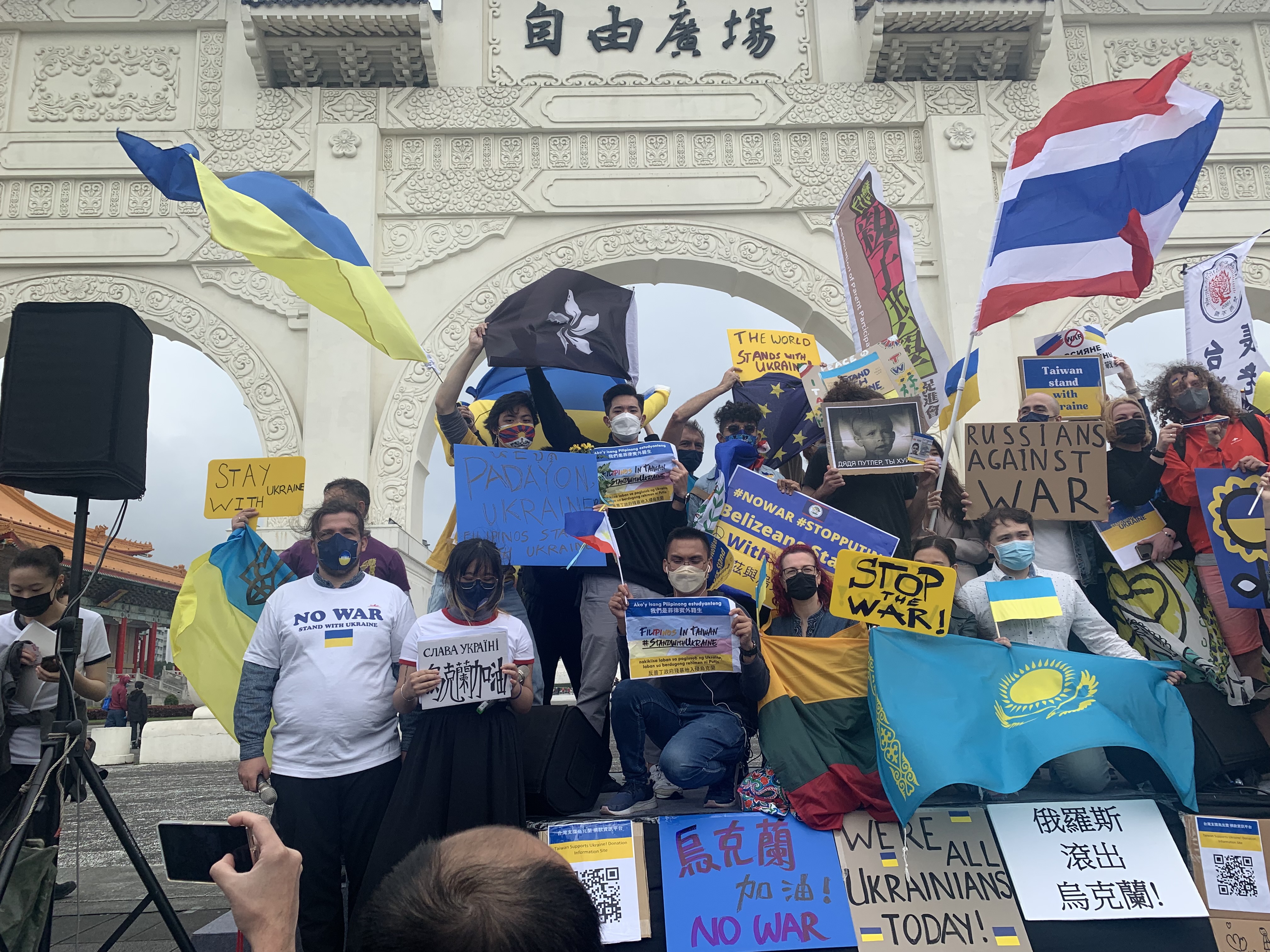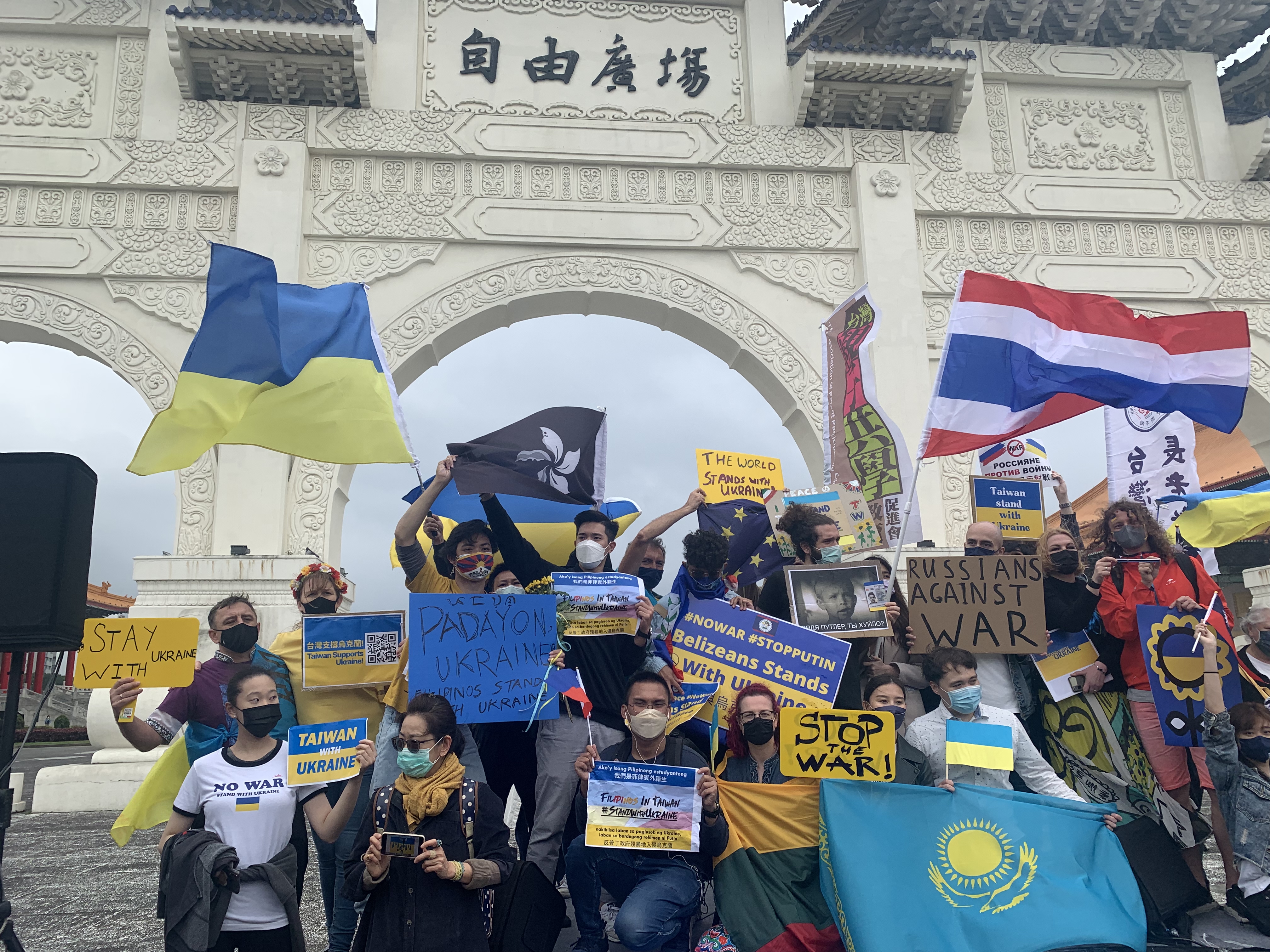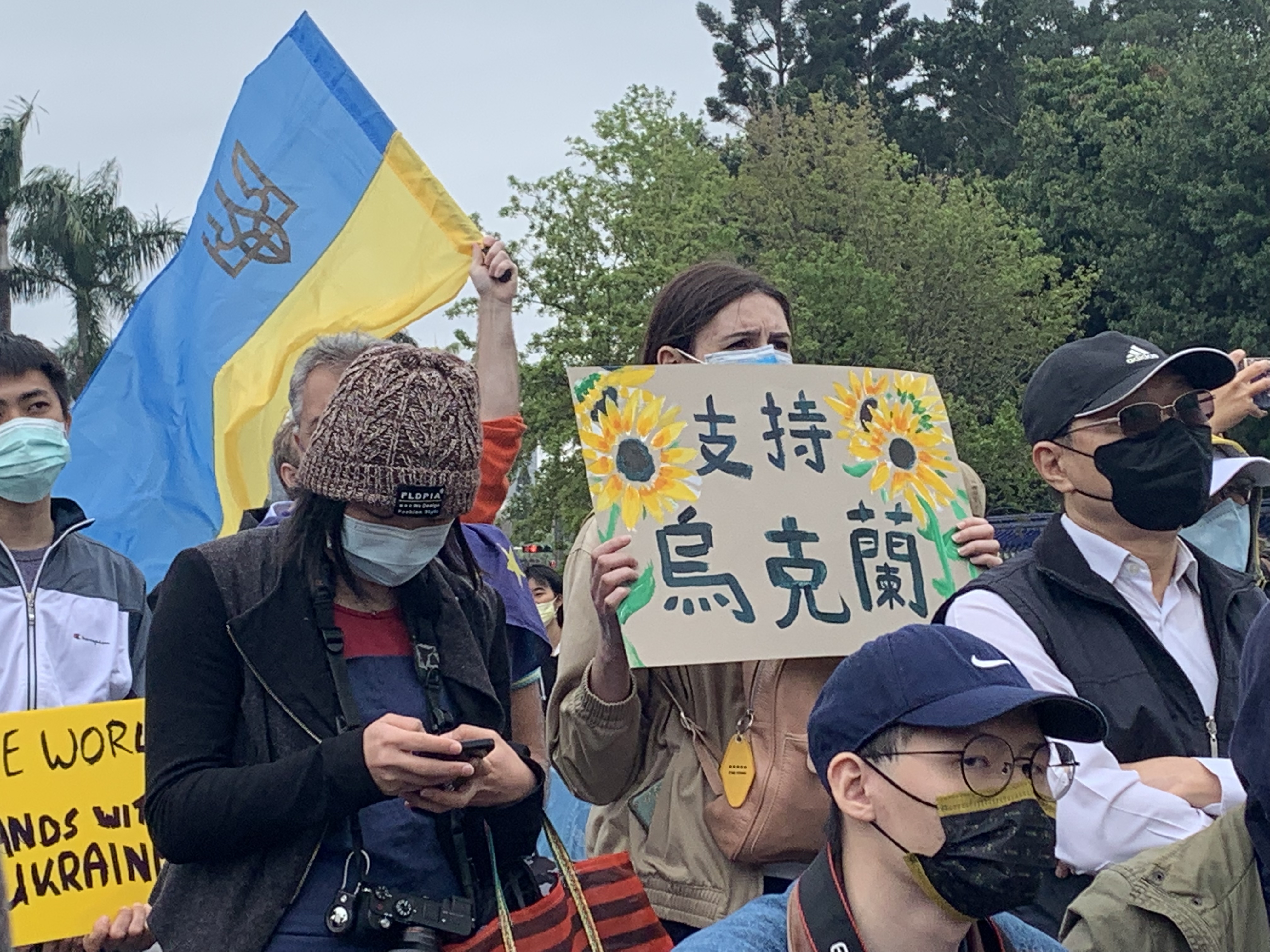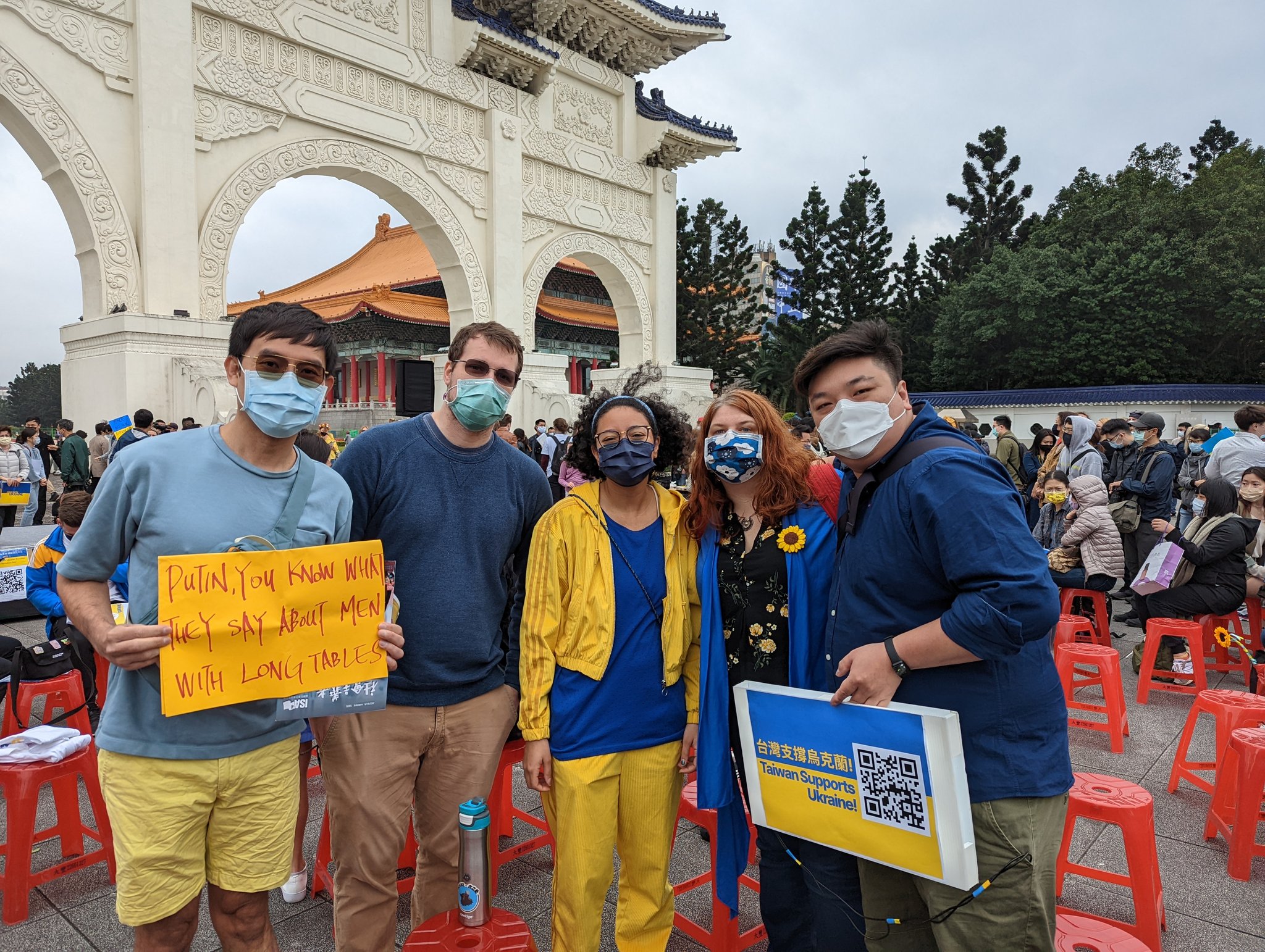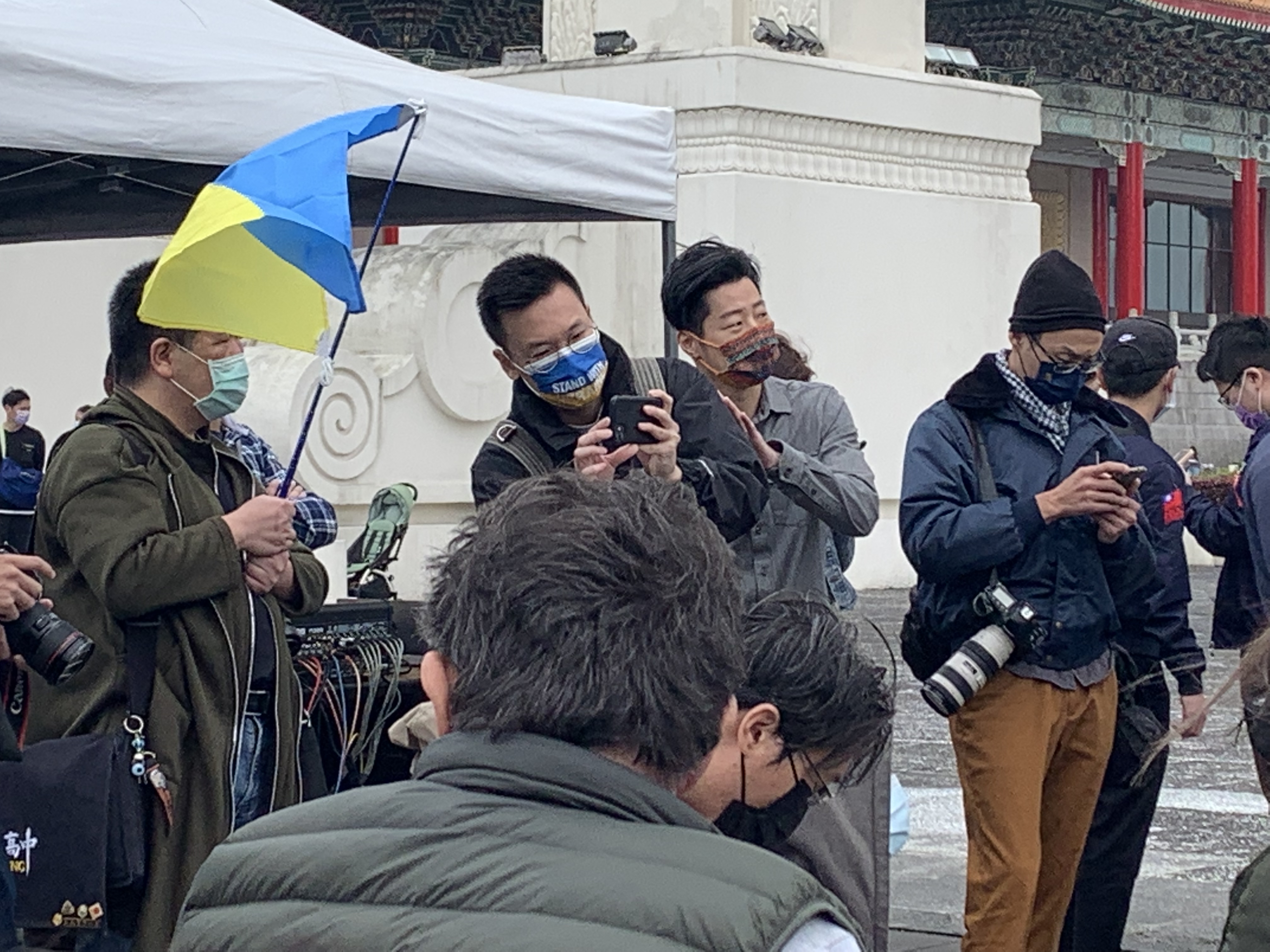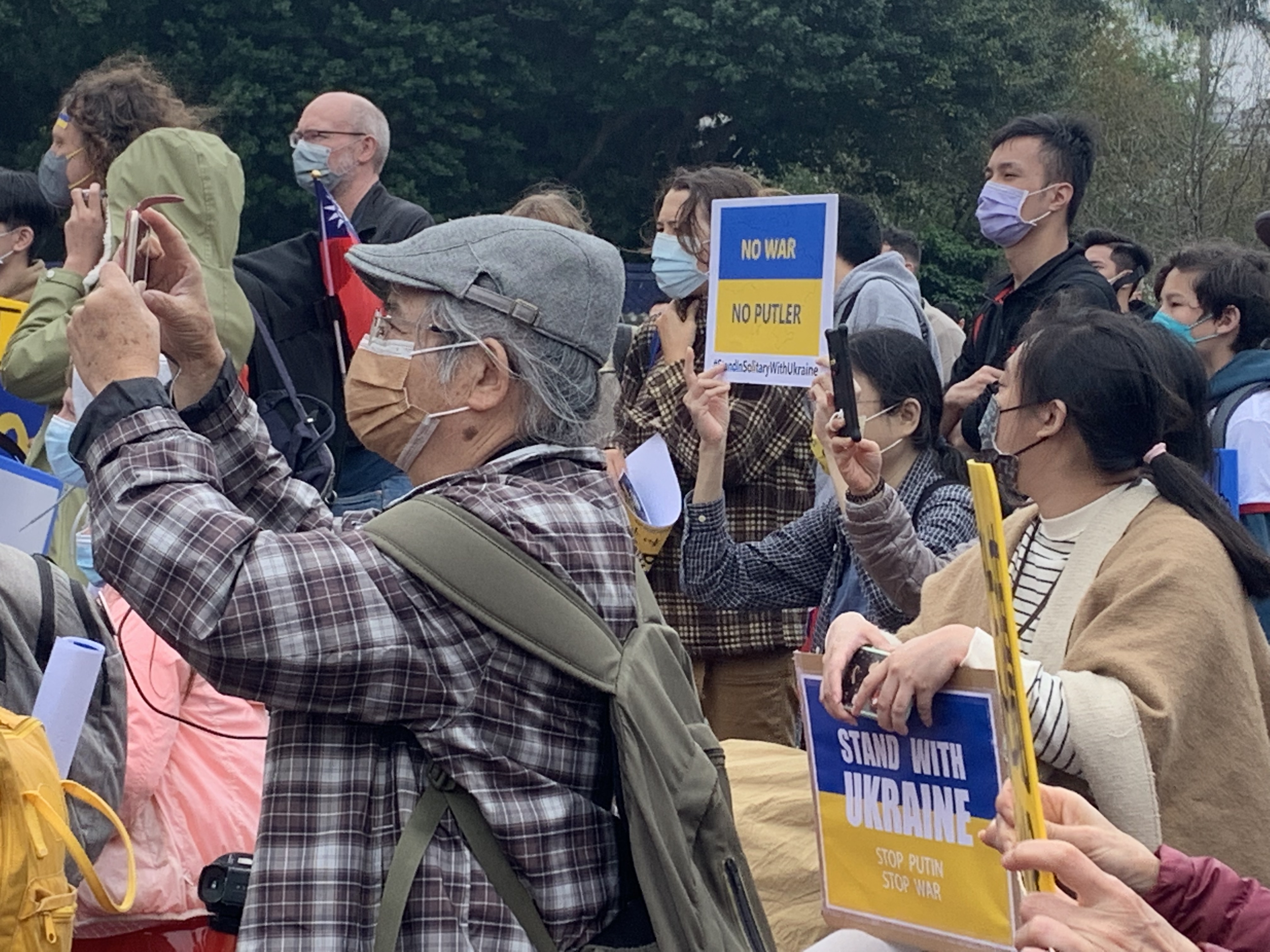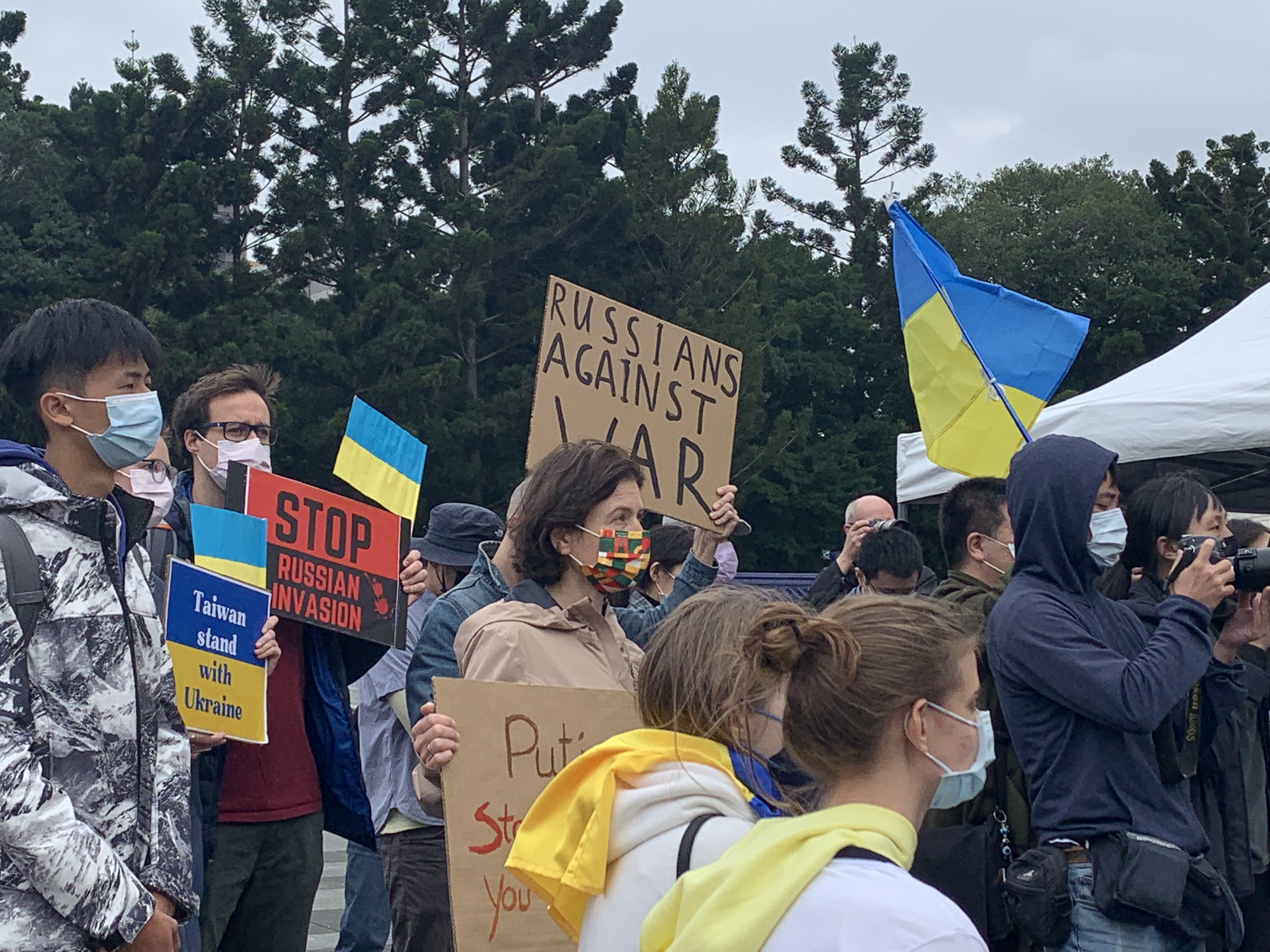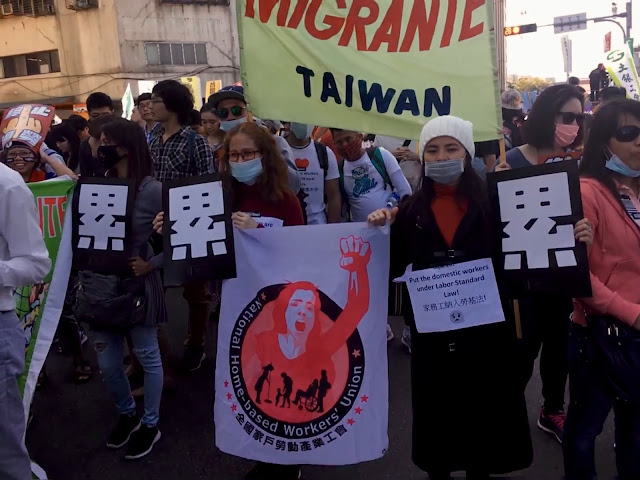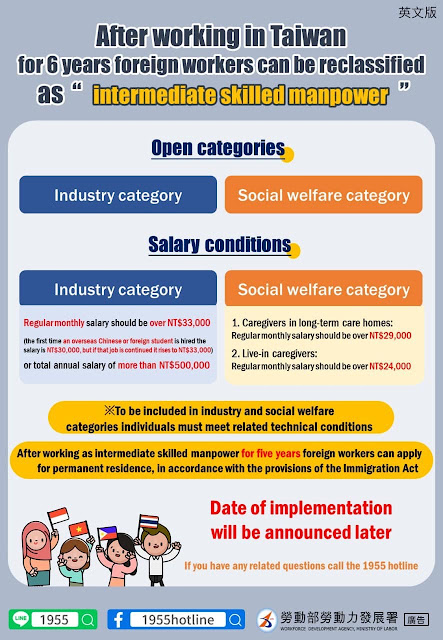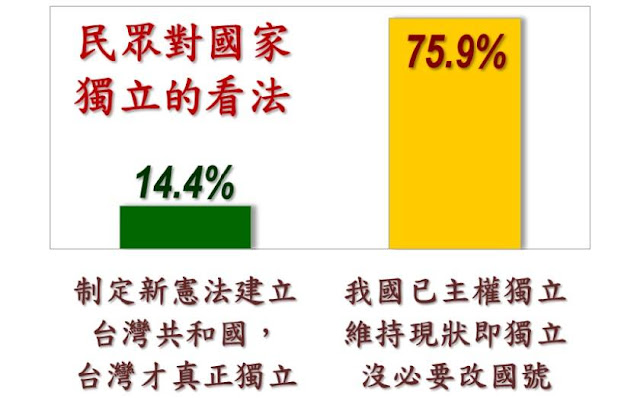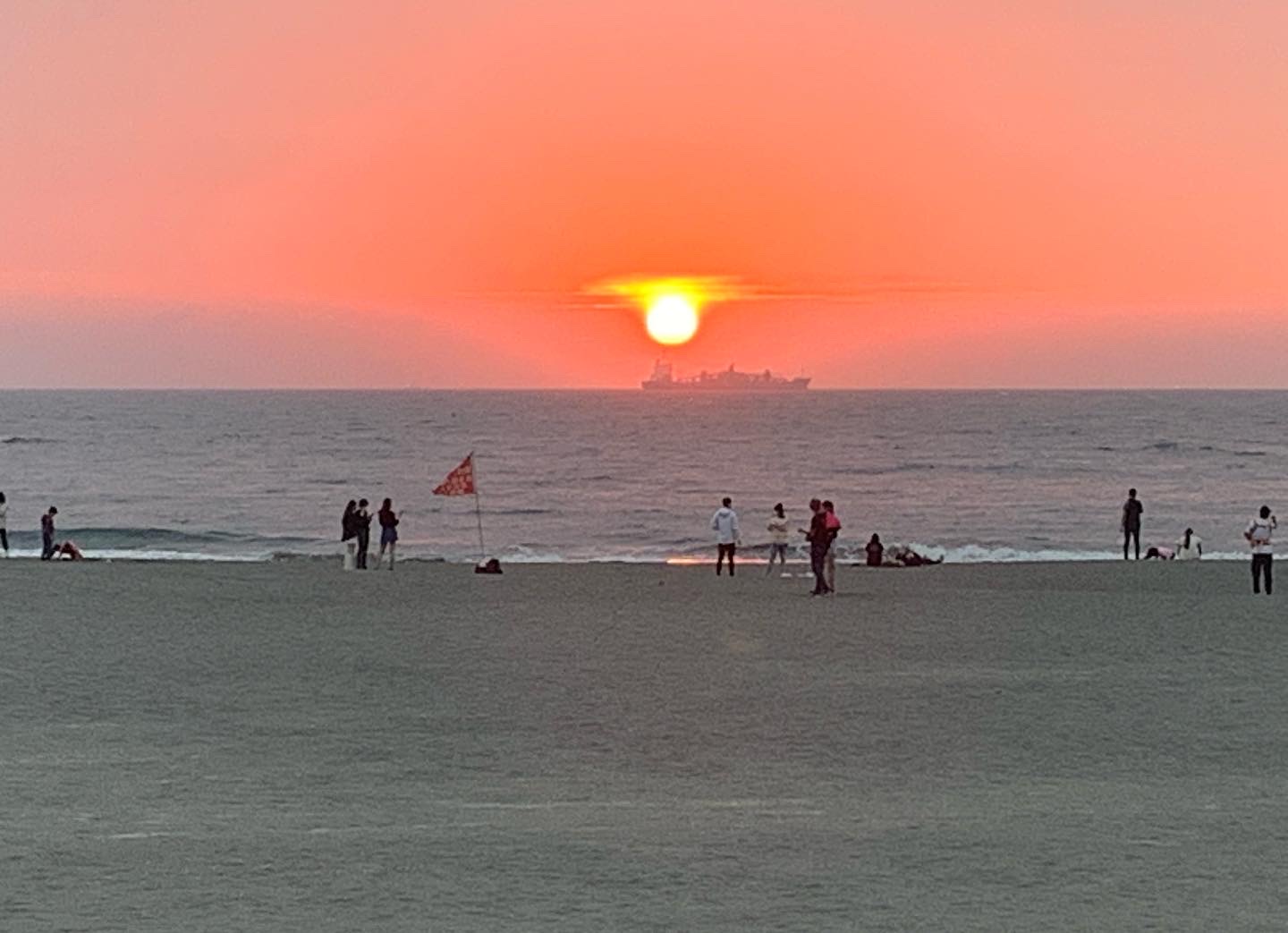I don't really like to compare Taiwan and Ukraine. They're different countries, and Russia and China are different aggressors as well. However, I'm not sure it still works to refuse to compare them when it's clear China is watching what happens in Ukraine closely -- while quietly sidling up to Russia as it pretends not to take a side.
I could go the depressing route on this and point out that they use the same bullshit rhetoric to justify annexationism and subjugation: same culture, same history, territorial integrity, the Ukrainian government/Nationalists in Taiwan are actually Nazis so we're just stopping Nazis and that makes us the good guys, this conflict was cooked up by the US/NATO to make big bucks from the war machine.
I could point out that they are actively encouraging milquetoast liberals (I'm a liberal, but I'm no milquetoast) to cry that we can only prevent World War III through appeasement of Russia so the "Ukraine conflict" won't escalate beyond Ukraine. It's not an accident that those same milquetoast liberals have been crying about how we can only prevent World War III by appeasement of China so the "Taiwan conflict" won't escalate beyond Taiwan.
Implicit (and sometimes explicit) in this is the assumption that the Taiwanese and Ukrainian people are disposable. Acceptable sacrifices.
If people truly believe appeasement stops world wars, however, I have some very bad news for them. It's never just about Taiwan or just about Ukraine, as it wasn't just about Sudetenland. When you make it clear a country can take over any other country they want if they can win, they will do just that. (And the US certainly has experience with this; they should know.)
The truth is, World War III is prevented by Russia losing, and soon. I don't see another way.
I could point out that Russia is alleging genocide in certain regions of the Ukraine but offering no evidence, whereas China is shouting at piles of evidence of their genocide and insisting it's all fake. Very soon, when people point out that Russia hasn't substantiated its genocide allegations, the same people who say the Uyghur genocide is fake are going to start screaming that if we believe allegations against China, we must believe them against Ukraine.
The fact that there's clear evidence for the former but not the latter won't matter. They'll scream it all the same.
And on, and on, and on it goes. We know Ukraine and Taiwan aren't exactly comparable, but I'm not sure Russia and China realize that.
So, if we're gonna ride this train, let's ride it all the way to Leather Town and talk about queer video parodies that seek to mock dictatorships. At least that's fun!
In 2014, Volodymyr Zelenskyy got together with some actor/comedian friends and used a song by Ukrainian boy band Kazaky to create a pro-Ukraine, anti-Russian government parody. The original song (called Love) isn't very deep or meaningful, The parody, however -- titled Made in Ukraine -- was absolutely a nose-thumbing at the Russian government.
If you're thinking huh, that reminds me of how Made in Taiwan is used as a bit of a pro-Taiwan slogan against Chinese aggression -- yes, that's the direction this train is headed. Leather Town's a big place, apparently.
In the video, Zelenskyy and his buds tear off traditional Ukrainian Cossack costumes to reveal leathery, BSDM-inspired gear and dance around in stilettos. It's similar to the original video (which, despite being marketed toward women, is extremely homoerotic and audiences noticed), but says a lot more. And, as the Los Angeles Blade points out, in the wrong hands this could have come off as deeply offensive.
But Zelenskyy and Co. used the imagery as a way to quite literally say that Ukraine is a country of acceptance, freedom and equality. That's not entirely true -- marriage equality is still not a reality in Ukraine. But, it seems to be doing a lot better than its Eastern European neighbors, especially Russia. In fact, Russia is practically leading the anti-gay crusade.
China is engaging in anti-LGBTQ+ crackdowns too, not unlike Russia. Remember that, because we'll be coming back to it.
Yet, seeing a bunch of straight men (as far as I know, Zelenskyy is straight) prance around in stilettos, perfectly at ease with their sexuality, saying that they'll dance traditional dances, carry traditional weapons and drink against the Russian invaders, "for freedom" and "for Ukraine"? That's a statement. They add that everything Russia hates (drag gear like lipstick on men and Pride parades) is "the entire Ukrainian Parliament" and they glitter-bomb and spit on Russian spies (I am not a fan of the stereotypical fat shaming when they caricature the Russian spy as a pig trying to eat a varenyky, but this fat lady is gonna let it slide. Fuck Russian spies!)
What does this have to do with Taiwan?
Remember, not that long ago, when washed-up joke Fanny Liu wore a Chinese-flag evoking horror show of a dress and sang a flaming garbage truck of a song about how she loves China, and it will take Taiwan because they have things like pay apps and home delivery? (Nevermind that Taiwan has those too.)
Remember how straight out of the patriarchy (pun intended) that video was, where basically the only draw was sexy dancing ladies half-heartedly twisting to cringe trashpop so badly that a few Taiwanese funeral strippers could out-do them easily? To really drive home the annexationism, most of the song was just chanting out names of provinces and how they're all okay.
Perhaps you don't, because Brian Tseng's parody of it (called Taiwan) got more than four times as many views.
I wrote about it at the time, and said similar things: it wasn't just about writing a funnier tune to mock Fanny Liu's garbage propo song. It entailed a group of Taiwanese male comedians, perfectly comfortable in their sexuality, dancing around in dresses and chanting the counties and cities of Taiwan. They even hired the same muscle dude!
That song started out mocking Chinese tourists for wanting stuff in Taiwan (like tea eggs) or things China doesn't always have (like doors on the toilets and TSMC), which perhaps wasn't great. But later on, they went for the meat of it: here in Taiwan we can talk about Falun Gong (even if we don't like them) and Tiananmen Square. Through it they point out that Taiwanese have better musical taste than to listen to Fanny Liu, and there aren't too many CCP bootlicking artists.
At the end, Brian whispered that we also have masks, no rumors of organ harvesting, and the right to vote. Implicit in the song was an acceptance of different sexual orientations and ways of expressing yourself and your gender identity.
I could see how someone might be offended by a bunch of straight men strutting around like drag queens (when they aren't drag queens), but all in all, I think that video pulled off exactly what it intended. From my perspective, it's great when men aren't hung up on acting super masculine or are afraid to don clothing gendered as female.
See the parallels now?
The songs are even stylistically similar, in that they're both dancey technopop in style and incorporate a lot of lyrical chanting, with a group of dancers in sexy outfits not taking themselves too seriously.
Both call on cultural or geographical touchstones to make it clear that their big bully neighbor's subjugationist propaganda has no purchase: Taiwan with its naming of the parts of the country as it throws Fanny Liu's trash right back in her face, and Made in Ukraine with its talk of the food, weapons and dances of the Ukraine. Both tie democracy and freedom to these ideas, and implicit in both is acceptance, not authoritarian hyperconservatism.
Both are important reminders that in the face of seemingly insurmountable authoritarian pressure from an annexationist neighbor, especially when they're having trouble being heard by the world, comedy is one of the most important outlets people have to fight back. It's how you get people engaged, get a message out, make a point. No, I do not think comedians are today's philosopher kings (most comedians just aren't), but comedy as an art form matters in the fight for a more progressive world.
Not just the comedy, but the music. China has tried repeatedly to put out pro-China, anti-Taiwan songs well beyond Fanny Liu's F-grade work, with some pretty horrible music that is apparently labeled "rap", except instead of Fuck the Police it's all about respecting totalitarian authority. Russia probably does too, I just haven't listened to any of it.
Taiwan, on the other hand, consistently puts out pretty good music which might come across as patriotic or nationalistic but generally espouses love, acceptance, knowing your history and, well, good values in general. And these songs aren't even the newest ones out there!
Notably, just as Tseng's video focused on Taiwan, not how much the CCP sucks, Zelenskyy's focused on what was great about Ukraine and when it referenced Russia, stuck to spies and "Moscow" -- the Russian government more than Russia as a country. That they were both smart enough know the difference matters.
And trust me, I know the difference. In researching my own family history, I came across the anthem of the Dashnaksutiun, the Armenian liberation party my great grandfather was very active in for awhile, in the early 1920s. The lyrics are all about bloody flags, killing Ottomans, and standing with the party as a way of standing with Armenia.
I'm pro-Armenia generally, but it isn't good. It isn't funny. It isn't about the progressive and democratic values I hold dear. And it was a bad song. These songs are about countries, yes. They evoke tradition or geography. But they're not about allegiance to parties, but ideals.
And they both show, as President Tsai herself has said, that progressive values can take root in traditional societies. They can and do flourish together.
Good morning #Taiwan. Today, we have a chance to make history & show the world that progressive values can take root in an East Asian society.
— 蔡英文 Tsai Ing-wen (@iingwen) May 17, 2019
Today, we can show the world that #LoveWins. pic.twitter.com/PCPZCTi87M
China, of course, bans that music and even bans some Taiwanese musicians from Hong Kong. When their own musicians stand up, they get arrested. They get arrested in Russia, too.
And this use of comedy and music hasn't stopped with Tseng and Zelenskyy. Namewee and Kimberley Chen put out Fragile (玻璃心) not long ago, mocking sappy Mandopop love songs by saying how sorry they are that they are breaking poor China's heart by refusing to be annexed.
Music matters, comedy matters, art matters. In this, I think we can compare Taiwan and Ukraine -- their use of comedy and music to make a point. Of course, not only are Russia and China moving in the opposite direction, towards repression and patriarchy, but these videos can't even be made in those countries. Democracy, liberty, acceptance, freedom of expression, progressivism, equality -- these values are related.
This is why it's not just about Ukraine or just about Taiwan. Both songs talk about countries, but they also talk about values. Allowing an authoritarian government to invade a neighboring country is wrong no matter what, but in these cases, it's happening to democratic countries that are moving toward progressivism, and share our values far more than Russia or China.
Appeasement doesn't work. But even if it did, at some point we've got to defend our values when they're threatened. Maybe we do that with comedy, or music. Maybe we do it by refusing a ride and asking for ammunition.
If we don't, then our values don't mean anything. We can't even be said to hold them.



